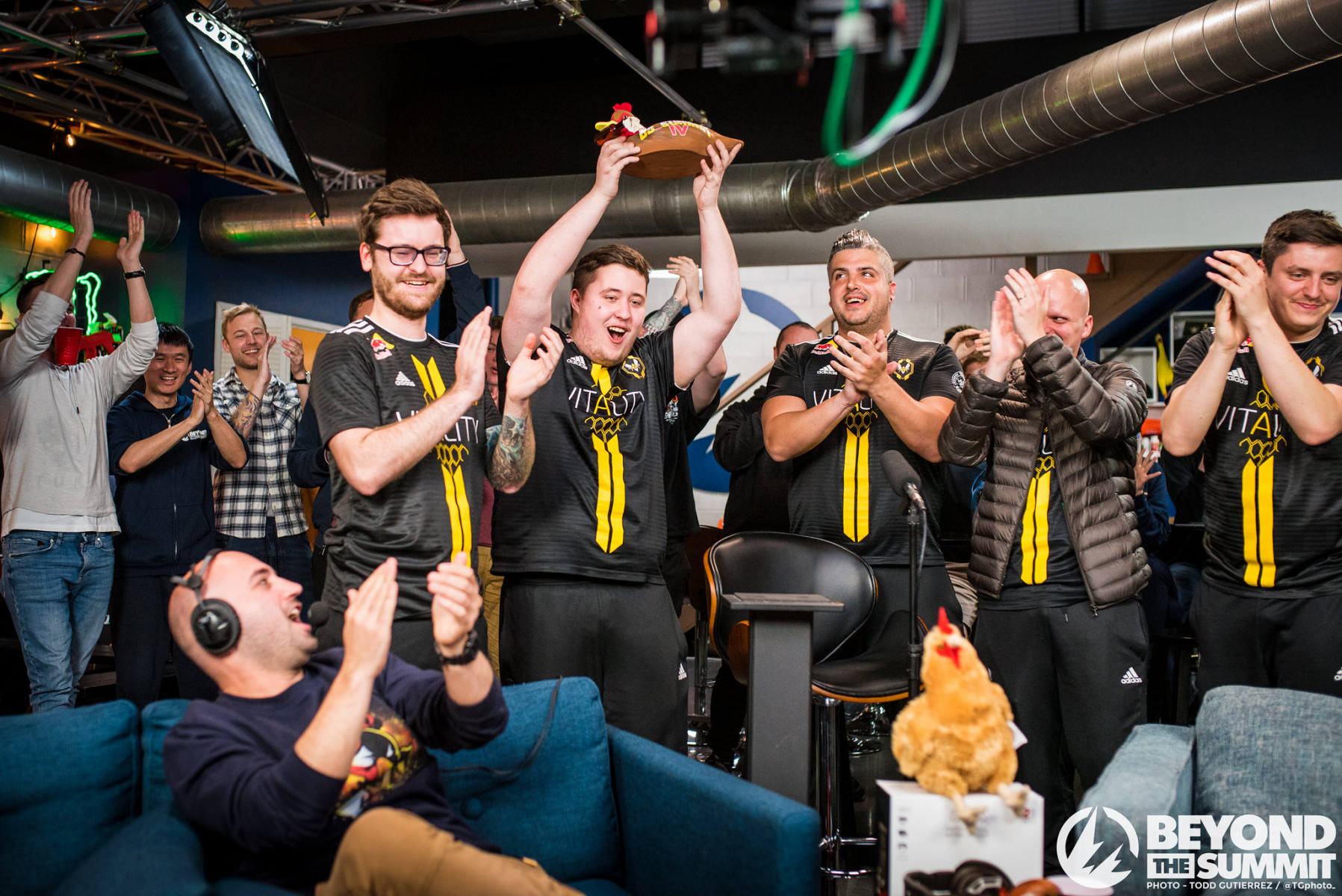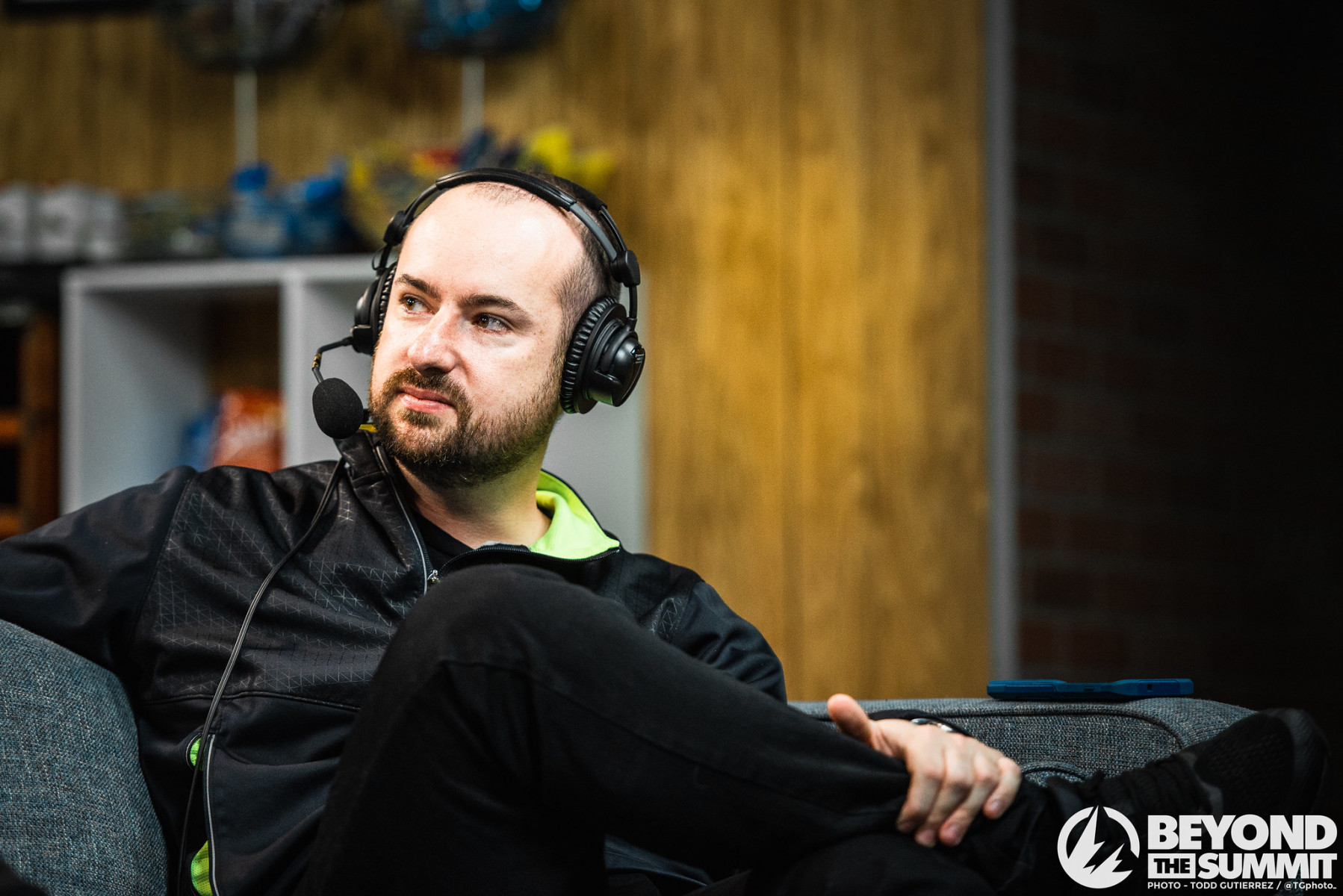German esports data company Bayes Esports has been named the exclusive data partner of tournament organiser Beyond The Summit (BTS).
Bayes has acquired the in-game data rights for seven BTS events in 2021, including the Dota 2 Pro Circuit (DPC) and a number of CS:GO events — which includes the recently concluded cs_summit 7.
Bayes was founded in 2019 by Sportradar and DOJO Madness. That same year, the company acquired exclusive data rights for League of Legends esports in three major leagues: the LEC (Europe), LCK (South Korea), and LCS (North America), as well as international events such as Worlds and MSI. Since then the company has extended its deal to include more regions, such as Brazil and Turkey.

RELATED: Bayes Holding closes $6m funding round
The company’s second major data partnership was agreed with ESL (now ESL Gaming), encompassing events such as ESL One as well as DreamHack events.
Beyond The Summit, founded in 2012, is a tournament organiser which started broadcasting Dota 2 competition. The company’s laid-back productions have become synonymous with the BTS brand.
Bayes and BTS will monitor competitive integrity as part of the agreement, as David ‘LD’ Gorman, Managing Partner and commentator at Beyond The Summit explained: “I think the number one thing we appreciate [about Bayes] is that they take integrity seriously. That’s very important to us. We’re not just forming a data partnership; we’ll be working together to ensure matches have integrity, monitoring match fixing, and so on. They have a really strong partnership mentality, and their communication is top notch.
“I think the thing we’re most excited about is that it’s a long-term partnership, which gives us long-term stability with our content calendar. Knowing we have a reliable data partner is huge. Long-term planning is one of the biggest things for us.”
Bayes Esports: A global reach
Bayes’s ultimate goal is to be the main hub of esports data, as Bayes CEO Martin Dachselt told Esports Insider: “Our aim is to centralise the availability of data … If someone wanted to offer betting and media services, they don’t want to contact 20 different companies and get the data in 20 different formats. That would require modifying codes, and so on. We want to create a central place where we offer as much as possible; every tier-one and tier-two tournament organiser we want on our platform eventually. This will help the industry as a whole. Our Bedex platform will allow innovative services and products which will drive engagement for fans.
“Other tournament organisers matter too; our tier-one partnerships include Riot Games [League of Legends] and ESL, but tier two matters a lot also. For example, Dota 2; Beyond The Summit is serving another region. This was our main interest. BTS is an interesting partner. They have a much different style to a company like ESL, and it’s still interesting for us.”

As well as enabling BTS to distribute its in-game data to betting companies, Dachselt points out that Bayes can also help with distribution to media companies: “We are not only looking to monetise to the betting industry. We also want to help TOs increase awareness for their events. Distribution includes not only betting, but also media. For example, we have Sportradar. You can see upcoming matches on Google. Fans are then aware of what happens; ‘when is my favourite team playing?’ It enables people to plan time around matches.
“When esports started, most people were young teenagers that were maybe in school, or just starting their careers. Fast-forward to now, many of those people have families and full-time jobs but are still CS:GO fans, so they don’t have as much disposable time. If the date and time of competition keeps changing, TOs might lose fans, because planning time is now more important for those viewers. This is where the industry needs to adapt to the needs of fans.”
Gathering in-game data
From a technical standpoint, what exactly does the management of esports match data look like?
“We can manage all data, even down to single bullets,” Dachselt added. “It’s really just a question of effort; for each data point you have to invest time to write code around it. We can then funnel data back to the tournament operator.
“Companies approach us for data, and investors want to know: which teams have what data? It’s the same thing for sponsors; they might want to sponsor one of the top three teams, and we will use data to make predictions of which teams are most likely to win; the probability as first, second, and so on. We provide data, then provide them to innovative companies for them to make products around that.”
[primis_video widget=”5183″]
RELATED: Bayes Esports: Why esports needs lateral entrants
Dachselt also spoke about the growth of esports from humble beginnings to what is sure to become a multi-billion-dollar industry, if it isn’t already: “Esports is young compared to [football]. It came from grassroots, LAN parties — everything was a bit shaped to the casual or amateur level. That was appropriate then. On the other side, when it turned into a multi-billion-dollar business, the situation changed. Now we must implement processes and rules which help us, partners, and customers.”
Using data during BTS broadcasts
Another way this partnership might help Beyond The Summit is through data visualisation tools that can be used mid-broadcast, though this is still in the works: “We’re still exploring and figuring that out,” said BTS’s David Gorman. “We only recently started working together, so we’re still learning about all [Bayes’s] tools. We can certainly use it for visualisation, statistics, building interesting storylines around match data and how that relates to past events and the general history of esports.”

Bayes’s Martin Dachselt outlines the potential for using visualisation tools mid-broadcast: “We can virtually extract data live from any game,” he said. “This speed is important. Usually the work is done after the match by taking the replay file, but we can do this live. This gives us the chance to visualise the data.”
While the current partnership spans through 2021, Dachselt is confident it will be a success: “We expect that we will extend the partnership,” he said.
“We’re excited to work with Bayes,” said Gorman, speaking before last weekend’s cs_summit 7. “We respect their track record. There’s a reason why they are partnering with big companies. We’re just super excited to kick off the partnership.”
Esports Insider says: There are few areas as ripe for the picking in esports, or indeed in business generally, as data management and distribution. Esports betting companies are making a fortune, and TOs stand to benefit from distributing and thus monetising in-game data. Bayes is one of the market leaders, and is building on previous partnerships to expand into the CIS region with this deal — given Beyond The Summit’s specialty is Dota 2, which is immensely popular in the region. BTS is an iconic brand in esports events, and will undoubtedly benefit from the partnership. There’s very little to criticise about either company — or the partnership itself.
[maxbutton id=”11″ ]
